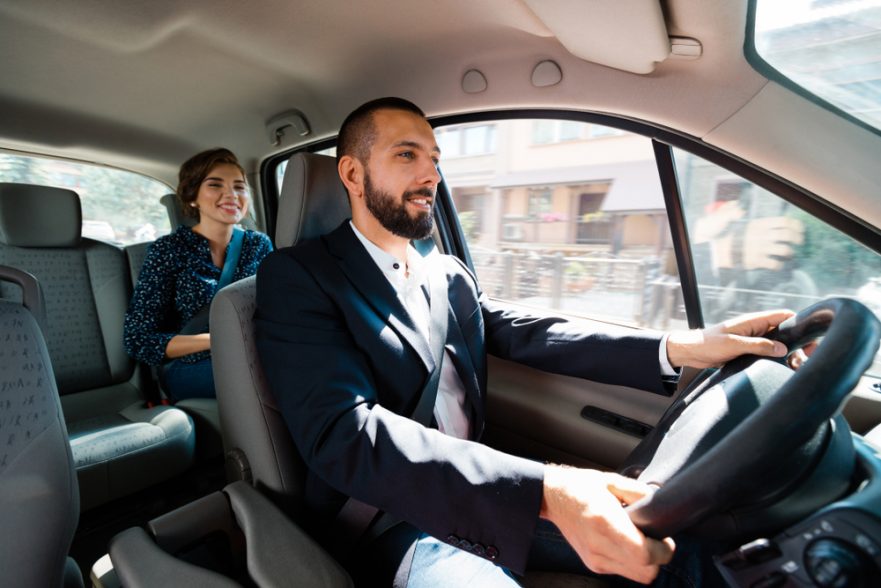A revolution in the transportation industry began in 2010, when Uber allowed people to arrange for and pay for a vehicle to pick them up at their location by using the company’s application on their smartphone. Lyft introduced riders to its service two years later. The number of passengers making use of ride-hailing services in the United States by 2023 is expected to exceed 61 million.
Ride-hailing and ride-booking services, such as Lyft and Uber, connect drivers using their personal vehicles with passengers in need of rides. When an accident occurs, resulting in personal injuries to a passenger in a ride-hailing vehicle, determining the identity of the responsible party against whom to assert a claim for compensation need not become a challenge.
Vicarious liability vs. independent contractors
Both Uber and Lyft provide networks accessible to riders and drivers through an application. Unlike most taxi and limousine drivers employed by a company, the concept behind ride-hailing is that anyone can earn extra money by picking up passengers, as long as a driver signs up for access to the application of one or both companies. Uber and Lyft drivers are not, however, employees of the ride-hailing services. Instead, drivers are independent contractors.
The distinction between an independent contractor and an employer is important when it comes to determining liability in the event of an accident. Employers could be held liable for the conduct of employees acting within the scope of their duties. If person is injured as a passenger riding in a taxi driven by an employee of the company that owns the vehicle, the company could be liable under the legal theory of vicarious liability. The injured passenger could sue both the employer and the driver for negligence in causing the accident.
Vicarious liability generally does not apply when the driver of a for-hire vehicle is an independent contractor operating a vehicle not owned by Lyft or Uber. A claim for damages by an injured passenger would be limited to the Uber or Lyft driver and the drivers of other vehicles involved in the collision, whose negligence might have caused or contributed to the accident and injuries.
Insurance coverage issues with Uber and Lyft vehicles
The standard liability insurance policy most drivers have on their personal vehicles does not provide coverage for accidents occurring when the vehicle is used for commercial purposes. Using the family sedan to pick up passengers through the Uber or Lyft application is a commercial use. Fortunately, automobile insurance companies have responded to the growth of the ride-hailing industry with endorsements that a vehicle owner can purchase to provide coverage in the event of injuries to passengers and others due to the negligence of the vehicle’s driver.
Both Uber and Lyft provide up to $1 million in liability insurance coverage to their drivers as a supplement to whatever liability coverage drivers already have on their vehicles. A passenger injured through the negligence of a driver of a ride-hailing vehicle may file a claim for compensation against the driver’s policy and the policy offered by Uber or Lyft.
What you need to do to protect your rights if injured in a ride-hailing vehicle
If you are injured in a collision involving an Uber or Lyft vehicle, you need to gather as much information as possible, including the following:
- Names, addresses, and telephone numbers for all drivers, passengers, and witnesses.
- Driver’s license number and the state of issuance for each driver whose vehicle was involved in the accident.
- Insurance company names and policy numbers for each vehicle involved in the accident.
If police respond to the scene, obtain the name of each officer, badge number, and department or police agency name. The officer might also be able to provide you with an incident number to make it easier to request a copy of the accident report filed by the police.
If you are physically able to do so, take pictures of the position of the vehicles and any damage to them.
You must file a claim with all insurance carriers issuing liability insurance policies covering the vehicles involved in the accident. This would include the policy provided by Uber and Lyft.
Seek legal advice from an Oregon personal injury lawyer
It takes an experienced and knowledgeable personal injury attorney to review the circumstances of a motor vehicle and determine the appropriate parties against whom a claim for compensation can be made by an injured party. When the accident involves a vehicle operated by a driver picking up passengers through the Lyft or Uber applications, the assistance of an attorney in notifying the proper parties and insurance companies of the claim for damages is essential.

